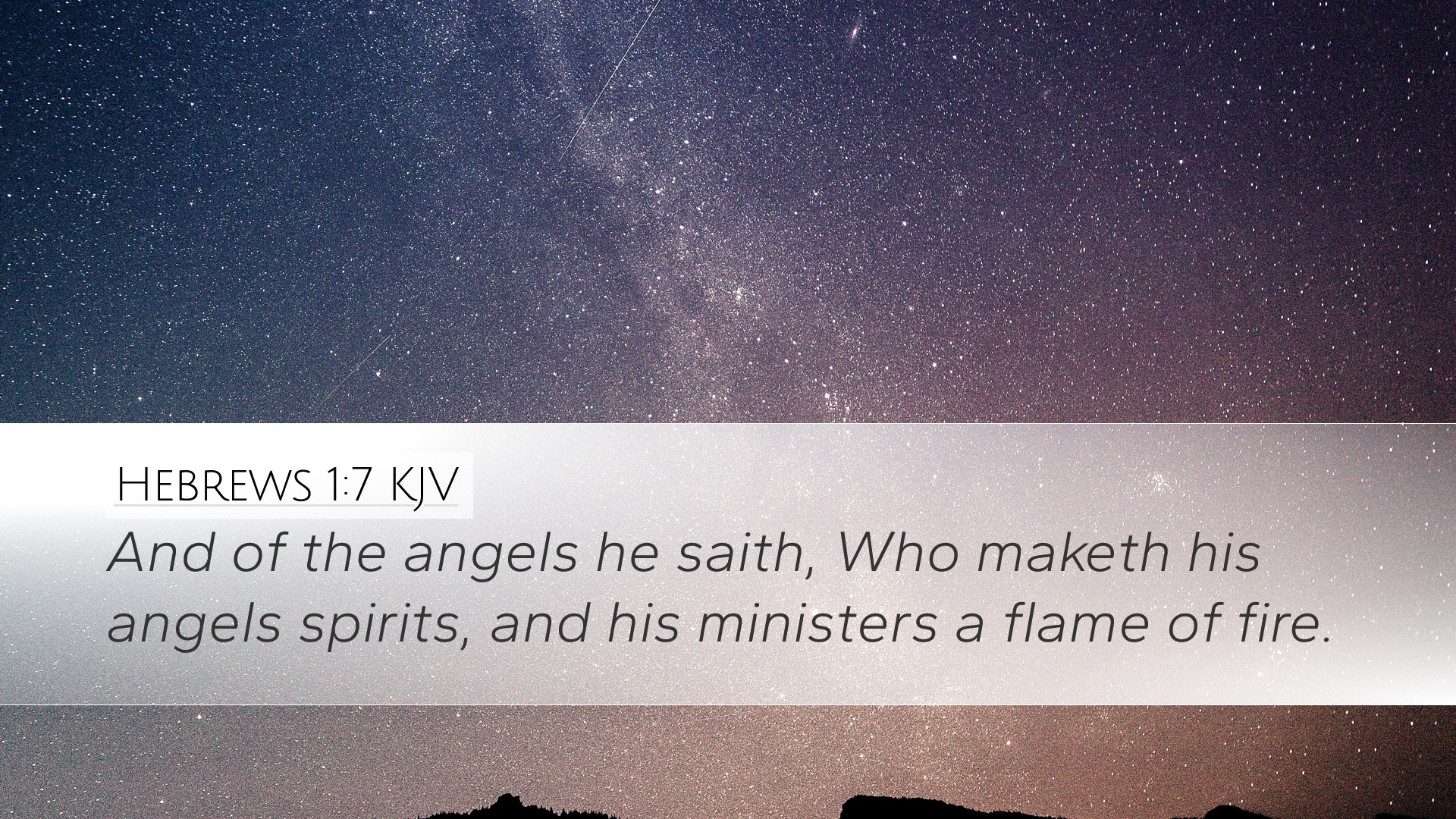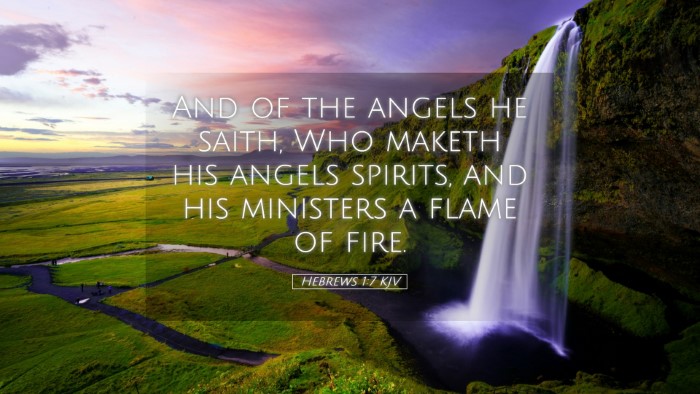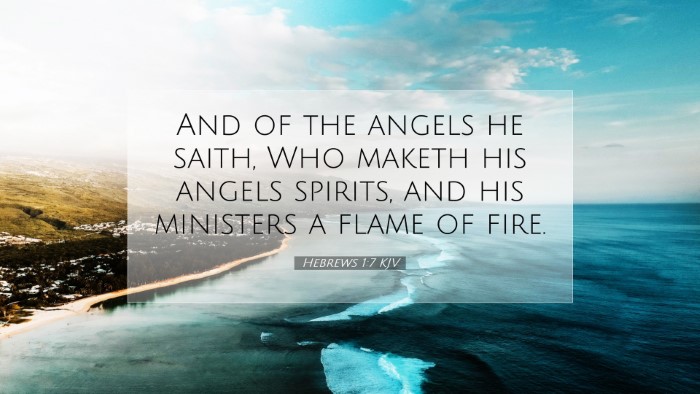Old Testament
Genesis Exodus Leviticus Numbers Deuteronomy Joshua Judges Ruth 1 Samuel 2 Samuel 1 Kings 2 Kings 1 Chronicles 2 Chronicles Ezra Nehemiah Esther Job Psalms Proverbs Ecclesiastes Song of Solomon Isaiah Jeremiah Lamentations Ezekiel Daniel Hosea Joel Amos Obadiah Jonah Micah Nahum Habakkuk Zephaniah Haggai Zechariah MalachiHebrews 1:7
Hebrews 1:7 KJV
And of the angels he saith, Who maketh his angels spirits, and his ministers a flame of fire.
Hebrews 1:7 Bible Commentary
Commentary on Hebrews 1:7
Verse (Hebrews 1:7): "Of the angels he saith, Who maketh his angels spirits, and his ministers a flame of fire."
Introduction
The verse under consideration is a part of the majestic introduction to the Epistle to the Hebrews, which emphasizes the supremacy of Christ over all things, including angels. In this context, the author underscores the nature of angels in relation to their Creator and compares them to the Son, who is presented as far superior. This commentary offers insights drawn from the works of Matthew Henry, Albert Barnes, and Adam Clarke.
Contextual Background
The Epistle to the Hebrews calls attention to the superiority of Jesus Christ as the ultimate revelation of God. The first chapter establishes a stark contrast between Jesus and angels, aiming to let the audience understand the unique authority and divinity of Christ.
Analysis of the Text
Angels as Spirits
Matthew Henry notes that this phrase—“Who maketh his angels spirits”—indicates that angels, being spirits, are ethereal and not bound by physicality. Their essence as spirits enables them to fulfill their divine functions, acting swiftly and with great power under the command of God.
Angels as Ministers
Albert Barnes emphasizes that the term “ministers” here refers to the roles that angels play. They are described as servants who execute God’s will, conveying His messages or executing His judgments. The imagery of “flame of fire” serves to denote their purity, zeal, and often their destructive power as instruments of God.
Theological Implications
The theological implications of this verse are profound. It speaks to the distinction between the Creator and created beings. Adam Clarke expounds on the idea that although angels serve God and play significant roles in His kingdom, they are ultimately submissive instruments of His divine orchestration. This suggests a hierarchy that recognizes God as sovereign while appreciating the functional roles of angels.
Comparative Analysis
Throughout this commentary, a comparison can be made between the nature of Christ and angels:
- Nature: Christ is divine; angels are created beings.
- Function: Christ as Savior and Lord; angels as messengers and servants.
- Authority: Christ has ultimate authority; angels carry out God’s commands.
Applications for Believers
This verse encourages believers to appreciate both the majesty of God and the roles that His heavenly hosts play in His plan. As Matthew Henry suggests, recognizing the greatness of angels should lead us to a deeper worship of God, who commands them.
Furthermore, as Albert Barnes points out, angels being compared to “a flame of fire” can remind believers of the holiness and purifying nature of the divine presence. The following insights can be drawn:
- Worship: Recognize God’s greatness and the order of His creation.
- Reverence: Maintain a sense of awe regarding the ministering spirits that serve God’s purposes.
- Trust: Have confidence in the divine order—knowing that God employs angels for His purposes in believers’ lives.
Conclusion
Hebrews 1:7 presents a vital understanding of the role of angels within the context of God’s creation, and establishes a clear distinction between them and the divine Son. As highlighted by both Adam Clarke and Albert Barnes, this verse not only affirms the sovereignty and majesty of God but also prompts believers to reverently acknowledge their place in the divine narrative.


